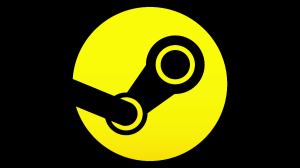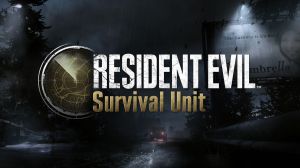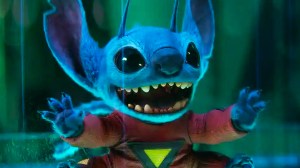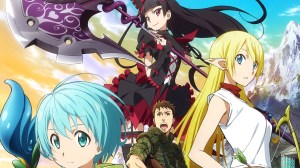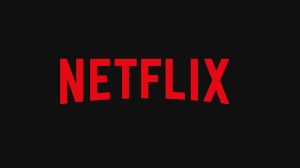Last week, ComicBook.com ran a story by our own Kofi Outlaw (follow on Twitter) asking “Does Deathstroke Still Matter in A Deadpool World?“
Videos by ComicBook.com
The original story was intended to be a relatively balanced look at whether the success of Deadpool limits the ability of Deathstroke to become a valuable piece of IP for DC Entertainment/Warner Bros. It defined its own thesis, as well as looked at some potentially mitigating factors.
The idea of this piece is to explore why the question being asked in the original was fundamentally wrongheaded.
A central theme to the original was that since Deadpool is a well-known riff on the Deathstroke formula — one that’s infused with more humor and has had more publishing success — that “mainstream” audiences are more likely to reject Deathstroke, who is expected to appear as the villain in Ben Affleck’s solo Batman movie.
Mainstream audiences, for this purpose, are those who aren’t immersed in fan/geek/comics culture.
They don’t know Deathstroke from the Arkham games or from Arrow;they don’t recognize him from the Teen Titans or Young Justice cartoons, and didn’t watch him in Son of Batman.
These are the audiences that would be, for all intents and purposes, seeing the character cold and making unwelcome associations to Deadpool.
There were some compelling points raised — and it can’t be overstated that, yes, having a similar name can be confusing — although it tends to be Deadshot and Deadpool who get confused far more than Deathstroke and Deadpool when it comes down to that.
Still, it can be argued that the high concept of the argument is flawed, for a few reasons that are explored in depth over the next several slides.
FRATERNAL TWINS

While it’s a generally-accepted piece of lore that Deadpool creator Rob Liefeld was…let’s say inspired by Deathstroke, it’s been years since the characters shared much common ground.
When New Mutants writer Fabian Nicieza first saw the character art for Deadpool, he reportedly said matter-of-factly: “This is Deathstroke from The New Teen Titans.” Liefeld has taken great pains to differentiate the two over the years, most recently in a video interview.
And while some of what Liefeld has to say might sound like rationalizing, covering his ass, or glomming onto the work of latter-day Deadpool writers and artists to draw a distinction where not much of one existed in his original work, the reality is, he’s (at least at this point) right. Most of Deadpool’s most important distinguishing characteristics aren’t shared with Deathstroke anymore, and/or they’ve been altered from the Deathstroke-inspired originals to the point where the characters feel distinct.
Yes, Deathstroke has enhanced healing — but Deadpool cranks that up to 11, with a healing factor that is frankly and gleefully absurd (remember the whole knife-in-the-head part of the movie?).
Yes, they both carry a sword, but it’s not the trademark weapon for either of them, really; both characters use guns more than they actually unsheathe the sword in most stories, and at this point Deathstroke relies heavily on hand-to-hand combat, while Deadpool is open to that — but when he wins, it’s often as a result of his healing factor simply refusing to let him die, even in the face of a beating.
Deathstroke has to win outright, and does so on the strength of his combat skills being his “signature” move at this stage.
And while it’s easy for comic book people, who have a history with both characters and who mostly have heard the stories that Liefeld was inspired by Deathstroke, to look at the two and say they look the same…do they really? Deadpool looks a whole more like Spider-Man than he does like Deathstroke — especially now that the Batman: Arkham take on Deathstroke is the one fans know best, so he’s wearing bulky armor and a hard plastic/metal helmet, as opposed to traditional superhero material.
Worth noting is that when he was created, Deadpool very much felt like Deathstroke. The humor, the absurdity, the fouth-wall breaking…all of that would be introduced by later creators after Liefeld had moved on to co-found Image Comics.
GEEK HAS GONE “MAINSTREAM”

A key part of the original argument relies on the idea that the non-comics-reading audience — necessary for success in other media — have no, or only a passing, familiarity with Deathstroke and that Deadpool making $800 million indicates that audience will likely see him as a ripoff.
Okay, fine, but let’s not forget that the Batman: Arkham series of games — in which Deathstroke was heavily featured — earned billions of dollars. The price for entry is significantly higher for video games than a theatrical movie, yes, but still. Within a couple of months of its release, Batman: Arkham Knight had sold 5 million units and earned $1.5 billion. You can quibble over audience size, percentage of audience crossover, and how much of the giant pile of Arkham money is from the same people buying all of the games, but the fact remains that Deathstroke was a major character in a pretty mainstream work of popular culture before Deadpool came along.
Combine that with the 3 million people Arrow averaged per week during the show’s Deathstroke-driven second season and you have a character who is no slouch at getting his message across. For the sake of argument, we’ll ignore the animated series appearances, because those are pretty much a wash for the two, what with Deadpool showing up on Ultimate Spider-Man while Deathstroke does all the Titans stuff. From DC’s perspective, though, they’ve had success making this character a relatively household name.
Another thing that the “Deadpool-is-Deathstroke” comparisons fail to take into account is the role that the characters serve in their respective universes. More on this later.
If you consider the most Deadpool-like (read: wearing tights and playing the antihero role) version of Deathstroke, that guy has popped up in a popular direct-to-home-video movie, Son of Batman, where he played the principal antagonist and the head of the League of Assassins, in a pretty clear nod to Arrow‘s take. Even with the relatively small built-in audience of those DVD movies, they seem to capture the temperature of audiences pretty well. DC has been using them to seemingly field-test ideas like the Suicide Squad (in Batman: Assault on Arkham) and DC’s supernatural characters, expected to come to live action in Dark Universe after appearing in the forthcoming Justice League Dark.
NO LAUGHING MATTER

Comic book superheroes are storytelling archetypes surprisingly resistant to parody and pastiche.
First of all, if you consider the fact that Deathstroke is supposed to be the film’s villain, not its lead, the idea of drawing a parallel between him and Deadpool becomes less like, say, Batman and Daredevil than it does Quicksilver and The Flash. Marvel/Fox have made no effort to make Quicksilver a lead character, opting instead to ensure that his relatively small amount of screen time is unassailably awesome, so that anybody shouting “He’s just a low-rent Flash” will be shouted down by those who are enjoying themselves at the movies.
This is pretty much how comic book characters have always worked: the most successful ones are broad archetypes who are both incredibly susceptible to, and surprisingly unharmed by, pastiche and parody. Does it hurt Arrow that there’s an Avenger with a bow and arrow? Does it hurt Doctor Strange that Suicide Squad had superheroes fighting magic last month? Was Ant-Man demonstrably harmed by the fact that The Atom already existed on Arrow and DC’s Legends of Tomorrow? The answer, across the board, is no.
It could be argued that the humor and parody elements of Deadpool change the math somewhat, but even that doesn’t hold up to much scrutiny. The two have coexisted for years in the comics, during which time Deathstroke’s popularity has only risen.
In Superman/Batman Annual #1, former Deadpool writer Joe Kelly took on the comparisons headlong, with hilarious results. Absolutely nobody read that annual and then said, “I’ll never look at Deathstroke the same way again.”
CROSS PURPOSES

“So while Deathstroke will likely be an awesome feature of the Justice League and/or Batman movies, it’d be harder to envision him carrying an entire film franchise,” the previous article argued — and yes, that’s likely true. Then again, while he’s had a string of marginally-successful comic book series, it seems pretty unlikely that Deathstroke was ever going to headline his own film.
We touched on this earlier, but it bears repeating: Deathstroke’s not being groomed for his own film franchise, he’s the villain in somebody else’s.
Deadpool IS being designed as the leader of a franchise. He’s catchphrase-spewing antihero along the lines of a functionally-immortal John McClane. He’s sympathetic, likable, and funny — and he has to be, in order to make $800 million on a solo movie.
Deathstroke is the anti-Batman. He’s cold, calculating, stoic, brutal, and his fight scenes won’t be played for laughs. And while he’s had his own comic book series and played the antihero role pretty frequently in the source material over the years, other-media adaptations have always featured him in one way: as a villain.
He is a (seemingly unbeatable) opponent to be defeated, an obstacle to be overcome. He’s not your headliner.
MUST THERE BE A DEATHSTROKE?

Anybody who’s a Superman fan has been through this song and dance before. Somebody comes along that does (kinda) the same thing in a (sorta) more entertaining way and suddenly the blogosphere is alightwith “Must there be a Superman?” stories.
Except we know how it goes. The pundits start to wonder that before the audience ever does.
And when the audience comes to ask about Superman’s relevance, we get John Byrne’s The Man of Steel. We get “Funeral For a Friend.” We get Kingdom Come. We get “What’s So Funny ‘Bout Truth, Justice, and the American Way?”
And right now, people are seriously discussing whether Deathstroke “matters,” he’s got a new, monthly title coming out as part of DC’s best-selling Rebirth initiative, written by Christopher Freaking Priest, one of the most acclaimed comic book writers of the last 30 years.
These things aren’t discussed in a vacuum, and it seems as though comics can hear, and respond, to our questions.


